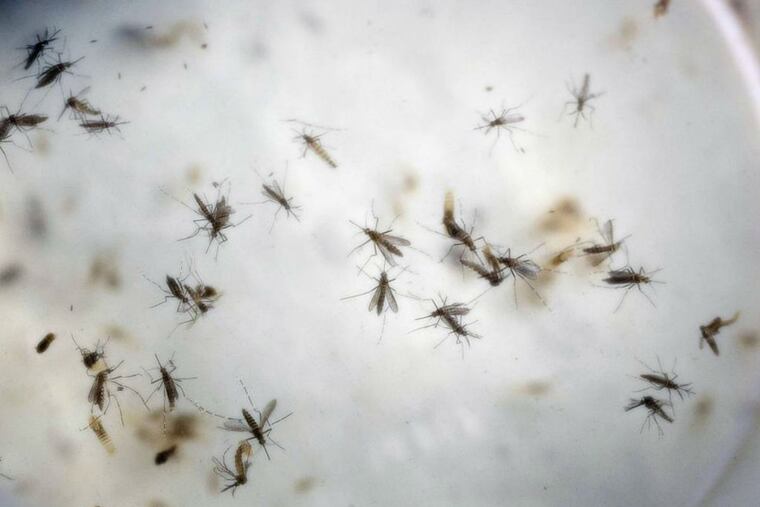Plymouth Meeting firm begins Zika vaccine clinical trials
The first testing in people of an experimental vaccine to combat the Zika virus will begin in the next several weeks, a Philadelphia-area biotech company announced Monday.

The first testing in people of an experimental vaccine to combat the Zika virus will begin in the next several weeks, a Philadelphia-area biotech company announced Monday.
Inovio Pharmaceuticals in Plymouth Meeting and partner GeneOne Life Science in South Korea said the U.S. Food and Drug Administration has given approval to begin early-stage tests in 40 healthy adults.
Shares of Inovio rose 6.97 percent, or 73 cents, to $11.20 after the announcement.
The tests will be done at three U.S. locations, including Philadelphia, and will evaluate safety, tolerability, and immunogenicity of the vaccine against the mosquito-borne virus. Test results from the study are expected this year, said Inovio president and CEO Joseph Kim.
Inovio is developing the DNA-based vaccine - using DNA sequences of the Zika virus - in collaboration with the Wistar Institute in University City.
"We are proud to have attained the approval to initiate the first Zika vaccine study in human volunteers," said Kim, who founded Inovio with immunologist and vaccine expert David Weiner, now at Wistar.
As of May, 58 countries and territories had reported mosquito-borne transmission of the Zika virus, Kim said.
GeneOne Life Science in Seoul operates the manufacturing plant in Texas where the vaccine is made. GeneOne has also collaborated with Inovio on DNA-based vaccines for Ebola and MERS.
Inovio has been working on the Zika vaccine since late last year, and has tested it in mice and monkeys with positive results.
The United States has yet to face a major outbreak, but concern is growing. The Centers for Disease Control and Prevention said 423 pregnant women had shown laboratory evidence of the Zika virus infection in the U.S. and its territories as of June 9.
The World Health Organization reported that 14 companies globally are working on Zika vaccines, including French-based Sanofi Pasteur, with U.S. headquarters in Swiftwater in the Poconos; Bharat, an Indian biotech company; the U.S. National Institutes of Health; and Novavax in Rockville, Md.
Sanofi currently has vaccines on the market for yellow fever, Japanese encephalitis, and dengue, which are in the same family, flaviviruses, as Zika, and are spread by the same species of mosquito. Sanofi expects to begin human testing of its Zika vaccine by the end of 2016.
Inovio's DNA-based vaccine does not use traditional live or killed viruses, and is quicker to develop because it creates a synthetic DNA sequence in a lab that triggers the body to create the same antigens as from a killed or weakened virus, Kim said.
Inovio said its Zika testing in mice, which was done at Wistar, and in monkeys at a lab in Maryland generated "very robust" antibody and T-cell responses that showed the potential to prevent infection.
The Zika virus causes mild flulike symptoms in most infected people, but has been linked to an increase in babies born with microcephaly, which results in abnormally small heads and impaired brain development. Health authorities have also seen an increase in Guillain-Barre syndrome, a neurological disorder, in areas affected by Zika.
215-854-2831
@LoydLinda